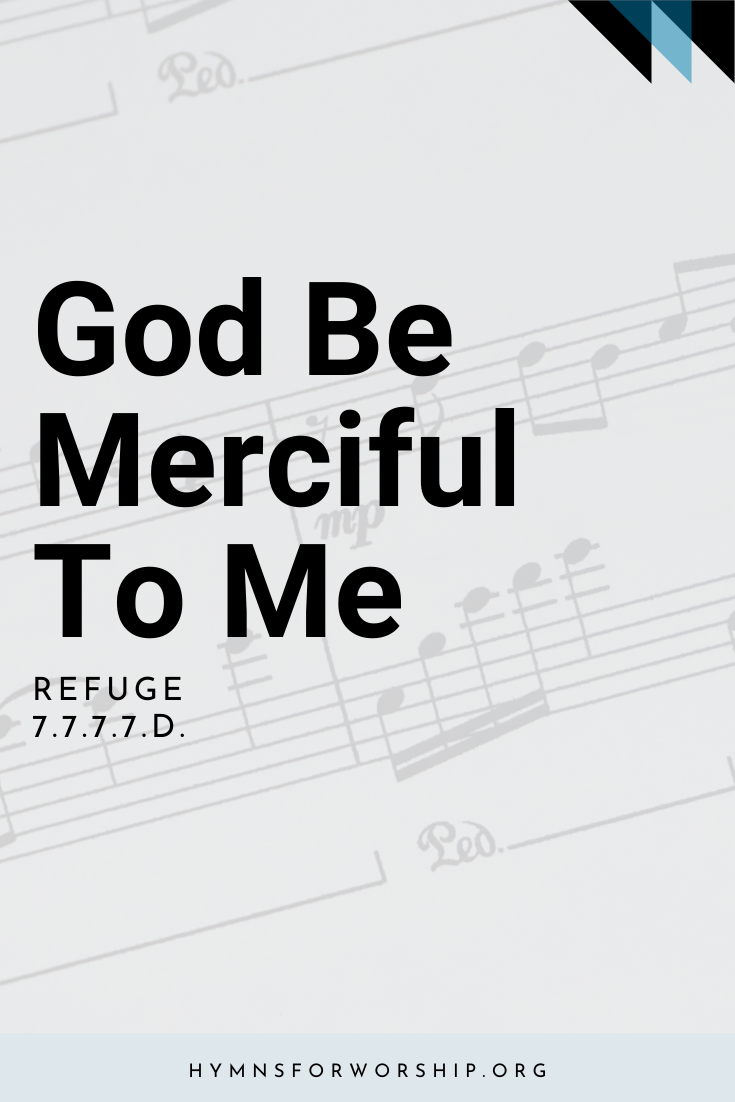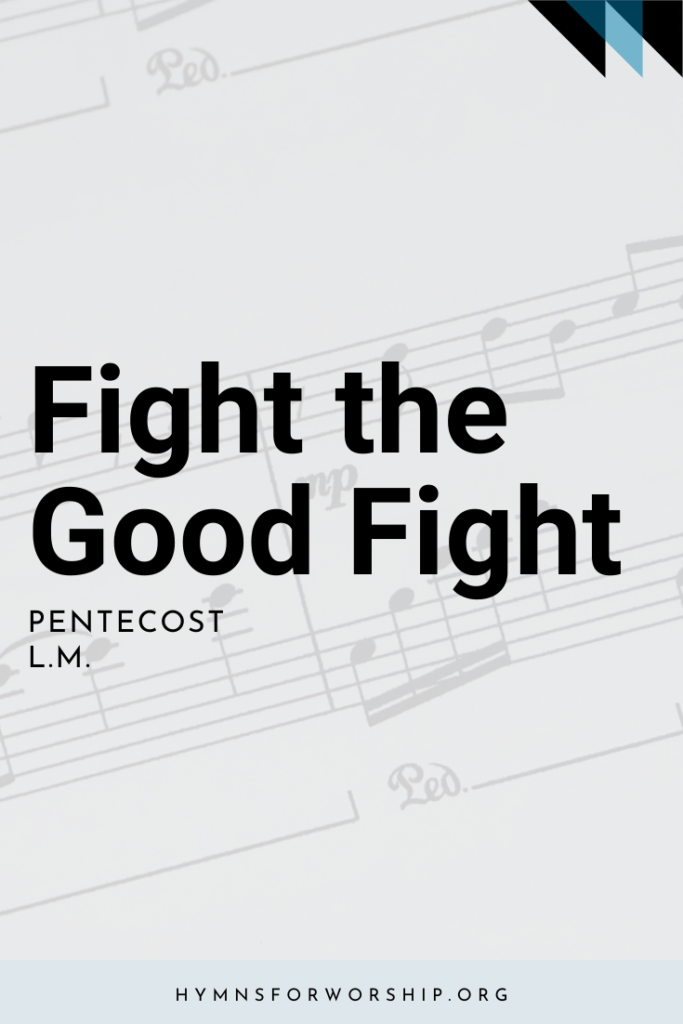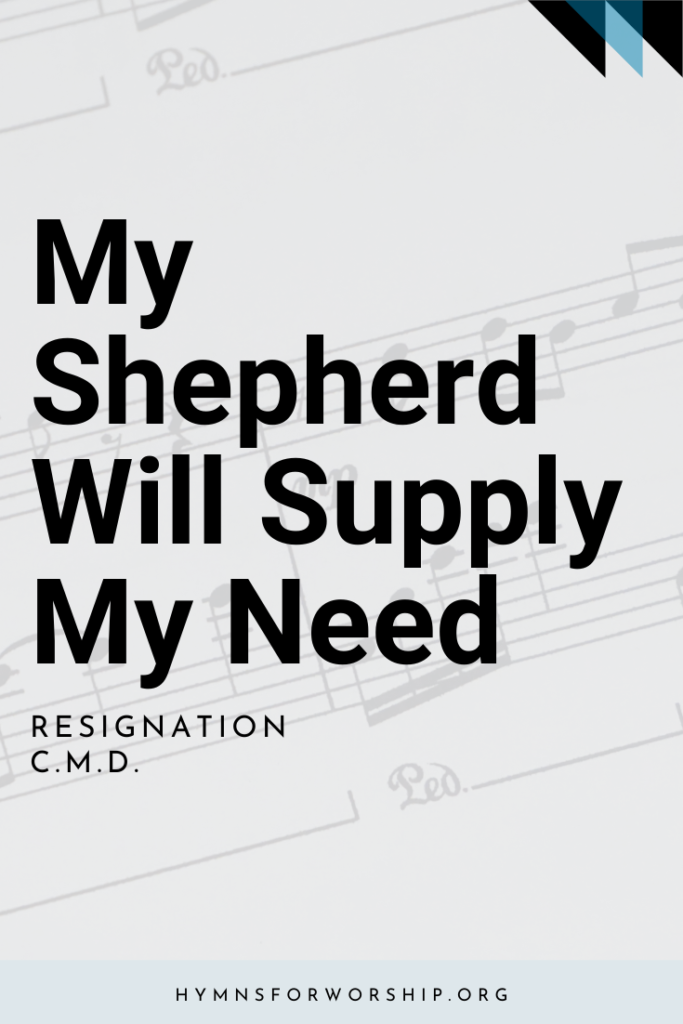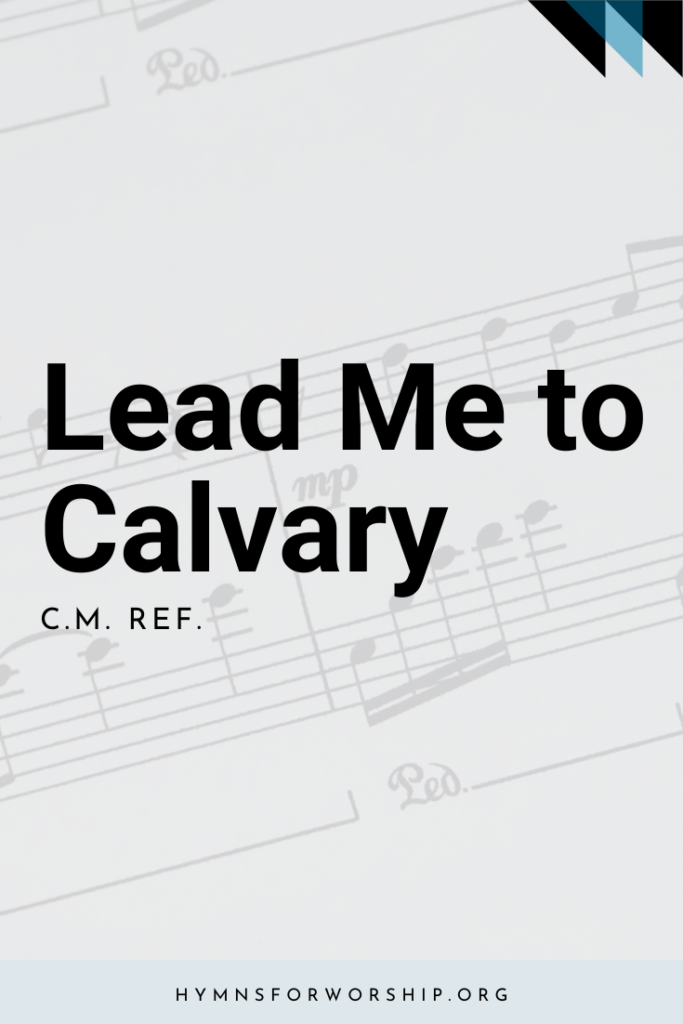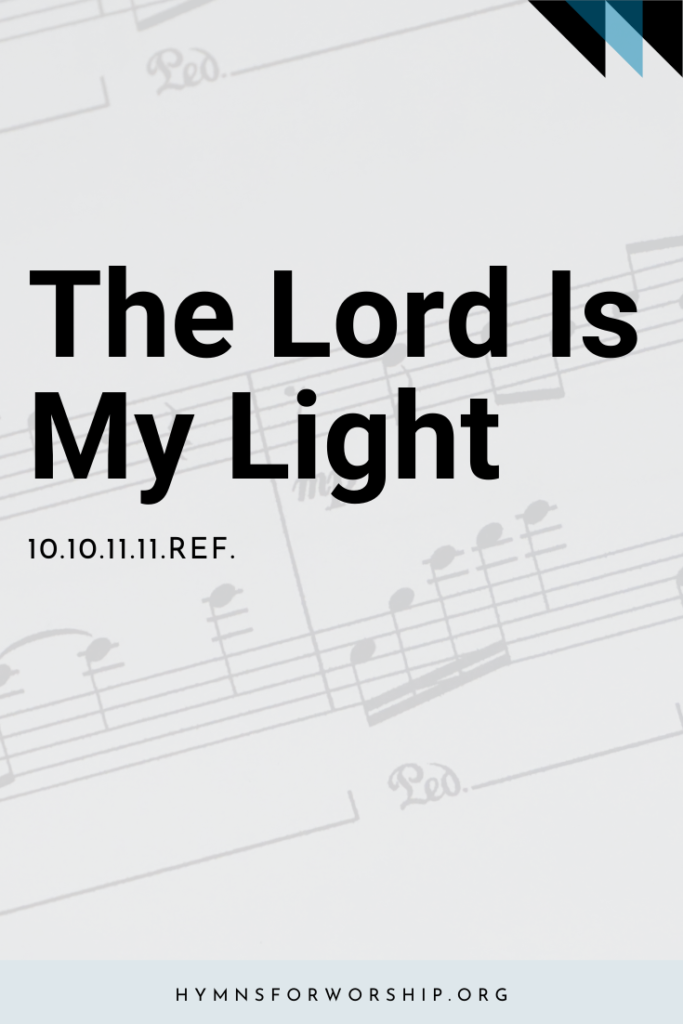GOSPEL >> FORGIVENESS
SDAH 297
God, be merciful to me,
On Thy grace I rest my plea;
Plenteous in compassion Thou,
Blot out my transgressions now;
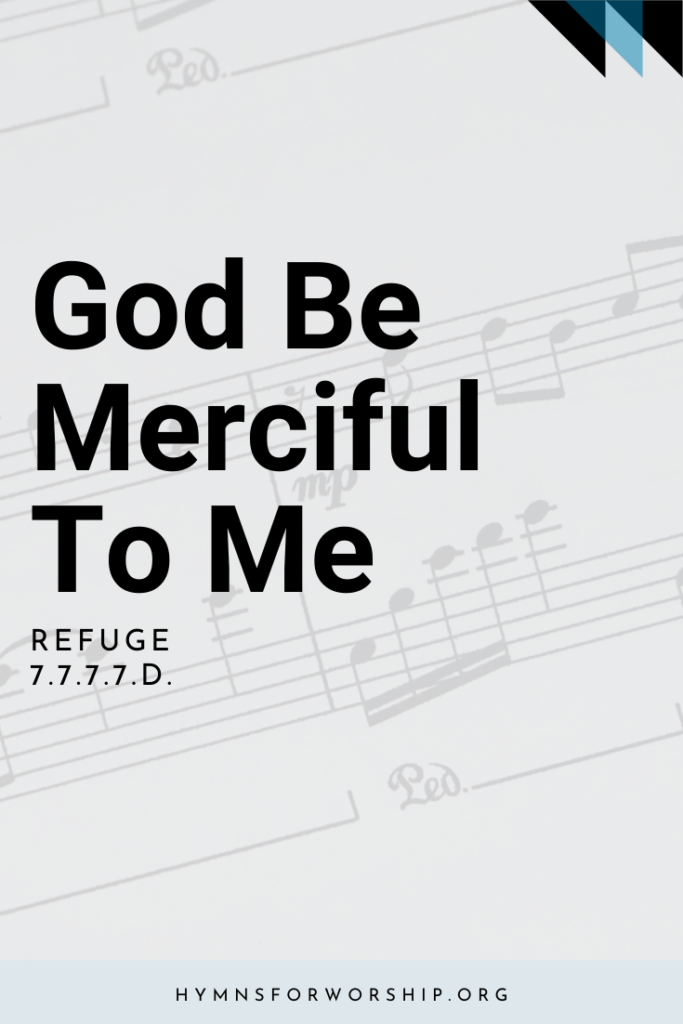

Text
1
God, be merciful to me,
On Thy grace I rest my plea;
Plenteous in compassion Thou,
Blot out my transgressions now;
Wash me, make me pure within,
Cleanse, O cleanse me from my sin,
Wash me, make me pure within,
Cleanse, O cleanse me from my sin.
2
I am evil, born in sin;
Thou desirest truth within.
Thou alone my Savior art,
Teach Thy wisdom to my heart;
Make me pure, Thy grace bestow,
Wash me whiter than the snow,
Make me pure, Thy grace bestow,
Wash me whiter than the snow.
3
Gracious God, my heart renew,
Make my spirit right and true;
Cast me not away from Thee,
Let Thy Spirit dwell in me;
Thy salvation’s joy impart,
Steadfast make my willing heart,
Thy salvation’s joy impart,
Steadfast make my willing heart.
4
Sinners then shall learn from me
And return, O God, to Thee;
Savior, all my guilt remove,
And my tongue shall sing Thy love;
Touch my silent lips, O Lord,
And my mouth shall praise accord,
Touch my silent lips, O Lord,
And my mouth shall praise accord.

Hymn Info
Biblical Information
Ps 51:1-15
Author
Anonymous
Hymn Tune
REFUGE
Metrical Number
7.7.7.7.D.
Composer
Joseph P. Holbrook (1822-1888)
Year Composed
1862
Theme
FORGIVENESS
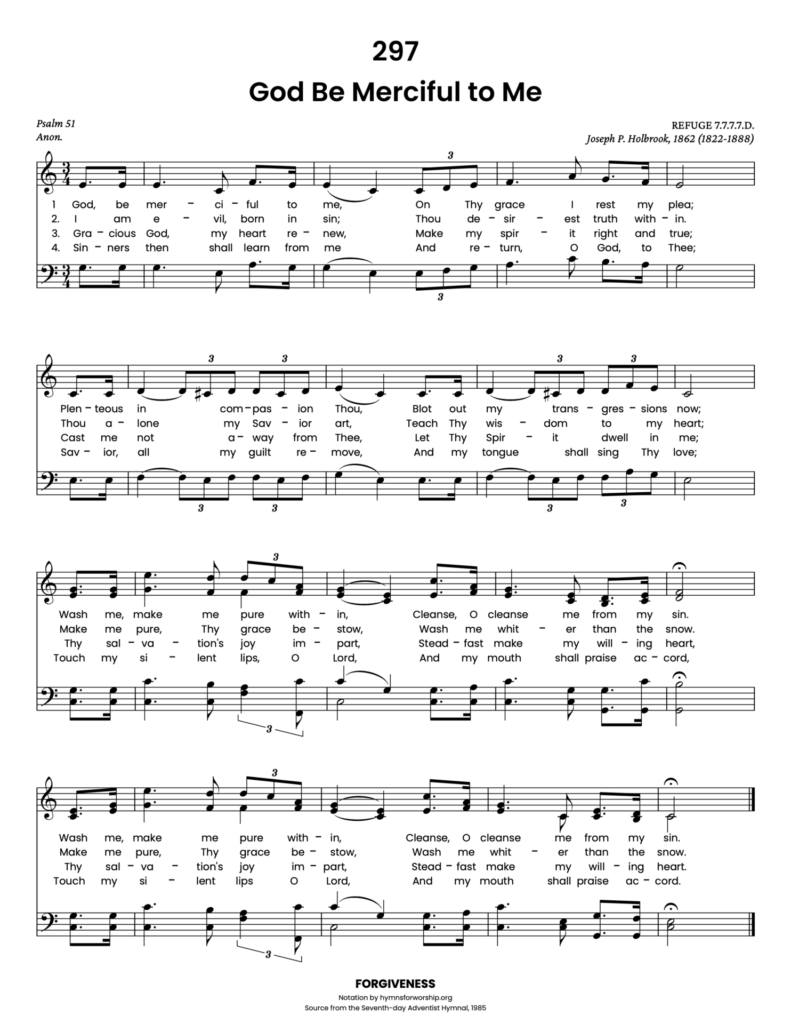
Get the hymn sheet in other keys here
Notes
Make each hymn more meaningful with these helpful tools: Short, ready-to-use hymn introductions for church bulletins, multiple ways to introduce a hymn based on your worship theme and in-depth history and insights to enrich your song service.
Although the text is based from David’s prayer, it has alot of similarities with Nehemiah’s plea for mercy. The plaintive melody of this hymn truly lends itself to its evocative, soulful mood. The anonymous author of the hymn begins recognising God’s ‘plenteous compassion’ and power to cleanse from sin. The rest of the stanzas takes us through that process of confessing, asking for forgiveness, and the life in which we can live in Christ, through His grace. (Lesson 2, 4th Quarter 2019 – Nehemiah, 10/5/2019)
Three aspects of intercession discussed in the lesson (1) Praying for our own people — family members, friends, and other people or situations. God hears our prayers and can intervene. Sometimes it may take longer for a prayer to be answered, but we can rest assured that God never forgets the needs of His children. (2) Daniel’s role as intercessor and mediator for the Israelites — the prophet realizes how sinful the people have become as they transgress God’s law and refuse to hear God’s warnings. Thus, recognizing their desperate spiritual condition, Daniel prays for healing and forgiveness. But the prophet also identifies with his people. (3) Christ as our Mediator — “God made him who had no sin to be sin for us, so that in him we might become the righteousness of God” (2 Cor. 5:21, NIV). (Lesson 10, 1st Quarter 2020 – Tuesday, The Value of Intercession, 3/3/2020)
Who has sinned? The Bible is very clear in answering that all of us have gone astray. But we praise God because He is merciful and He offers forgiveness to all of us. All means no one is secluded. (Lesson 12, 1st Quarter 2021 -Monday, Who is Forgiven?, 3/15/2021)

